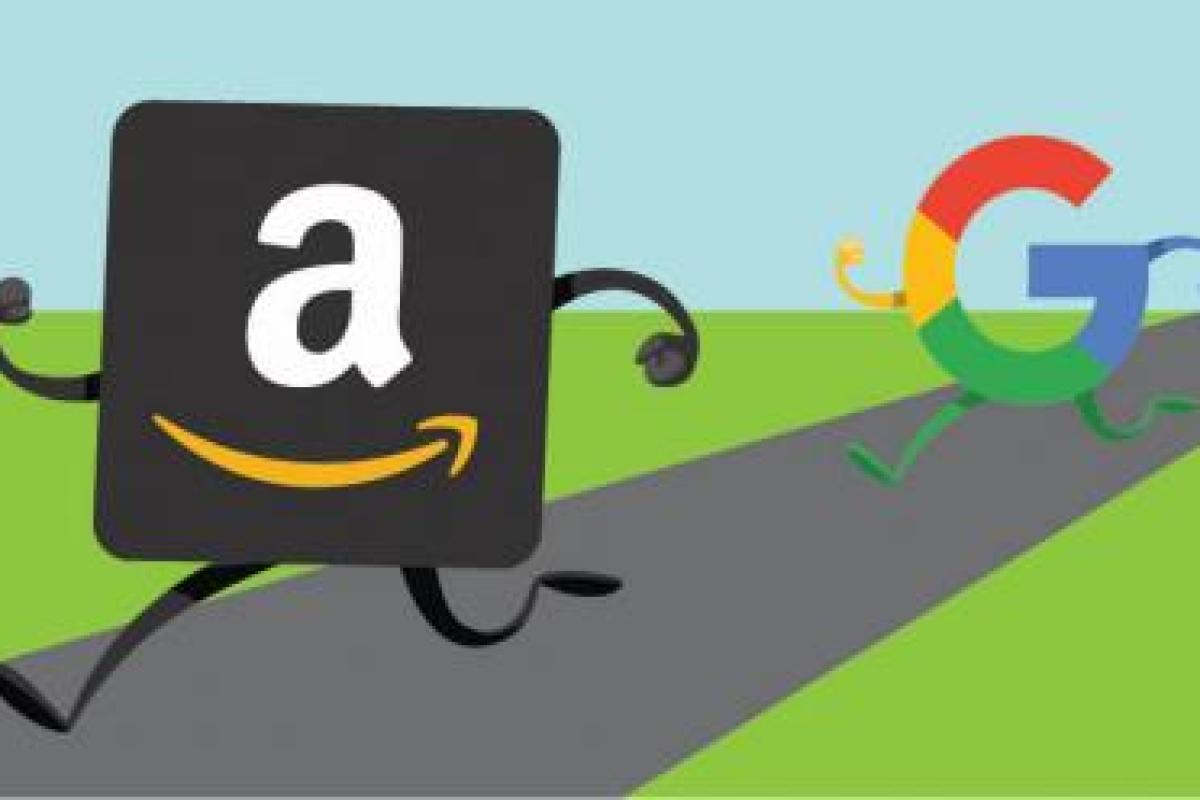Today’s technology giants are spending billions of pounds to define what simplicity will mean to us in the not-so-distant future: travelling in autonomous mobility systems, having the ability to access multiple augmented realities, swarms of delivery drones flying from robot-manned airships above major cities, advanced artificial intelligence doing all the thinking for us. But outside of this realm of science fiction which tech brand is succeeding best in simplifying our daily lives in 2017?
Google and Amazon - two brands with Simplicity at their core
The differentiating quality of the Google search engine algorithm was that it ranked sites by relevance rather than traffic, optimizing the customer experience. Google’s mission statement is ‘to organize the world's information and make it universally accessible and useful’ - simplifying runs through the brand’s DNA and has done so from the very beginning. In contrast, Steve Job’s original mission statement at Apple was ‘to make a contribution to the world by making tools for the mind that advance humankind’ – lacking a sense of empathy with the end-user, and arguably encouraging complexity.
“The more choices you throw at people, the longer it takes them to get stuff done.”
Larry Page, Google CEO
Amazon’s mission statement is ‘to be earth's most customer-centric company; to build a place where people can come to find and discover anything they might want to buy online’. Based on a recent survey, more shoppers use Amazon as the starting point for product research than search engines like Google or retailer sites. The simplicity of a broad selection of products, customer reviews to assist choice-making and a free shipping option all remove friction from the customer journey. Whilst it is often taken for granted in internet search, customer-centric simplicity is more differentiating in retail. As Amazon expands from e-commerce into hardware, software and services, the brand runs the risk of confusing consumers – but it also has more opportunities to add value to our everyday lives.
“We’re not competitor obsessed, we’re customer obsessed. We start with the customer and we work backwards.”
Jeff Bezos, Amazon Founder and CEO
Both Google and Amazon are committed to simplicity – but in different ways. At Siegel+Gale we define simplicity as creating brand experiences that are remarkably clear and unexpectedly fresh. The most successful brands are identifying pain points in everyday processes, reimagining experiences to remove friction, saving time and empowering people.
But which brand is bringing most simplicity to our day-to-day lives?
Now in its seventh year, the Global Brand Simplicity Index is an annual survey conducted to determine the global state of simplicity for customer experience and communications. We surveyed more than 14,000 consumers across nine countries and asked them to evaluate a total of 857 brands in various industries on perceived points of simplicity or complexity.
Google is perennially simple – consistently sitting in the top five percent of UK brands in the GBSI - but 2017 sees the brand reach its highest level since the study began. Last year saw Google invest further in augmented and virtual reality software, automated vehicles, robotics and artificial intelligence. In fact, 2016 was the year that Google’s AlphaGo AI bested Lee Sedol at a competitive game of Go. Whilst building brand reputation, most investments didn’t transform real-world consumers’ lives today. The exception being the launch of the new voice activated Google Home hub, supported with Google Assistant software as the brand pushes for more of an end-to-end user experience.
Amazon’s UK performance varies each year. In 2015 Amazon invested to drive Amazon Prime subscriptions, through original content and new pricing strategies, with less focus on simplifying customers’ lives and consequently dropped to the tenth place in the UK Index. However, this year’s report sees Amazon achieve the number one spot for the first time since 2013.
Amazon’s innovation has not been about new ways to buy products or consume content, or investment in the distant future, but in directly simplifying daily life. Amazon’s own voice activated home hub Echo and supporting virtual assistant Alexa were widely regarded as the big winners at this 2017 Consumer Electronics Show in Las Vegas, superior to Google’s offering because of a focus on inclusive integration across different hardware and operating systems. Whereas Google’s AI was focused on beating humans at board games, Alexa was dedicated to simplifying your life by ordering you a meal, playing your favourite song, then flagging you an Uber to get you to the pub. Other innovations included Prime Now, Amazon Fresh and Prime Air drone deliveries – showing that Amazon values our time and understands what matters to us today.
All in all, Google is a company that undoubtedly is shaping our future, but Amazon is better delivering its mission as a consumer-centric, simplifying force with a compelling customer experience across software, hardware and services. Historic performance would suggest that Amazon will struggle to maintain this lead -
especially with Microsoft, Samsung and Apple launching home hubs – but 2017 may be a pivotal year in establishing our expectations of a Smart home experience. Only time will tell.
